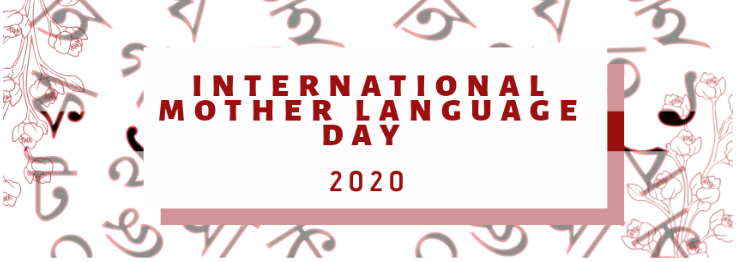Our mother tongue is more than a mode of speech; it’s a legacy, an emotion and a legend we’ve carried down to four generations. On International Mother Language Day, we pay our gratitude to the martyrs who shed themselves for their right to speak, for Bengali, for every human’s mother tongue.
আমার ভাইয়ের রক্তে রাঙ্গানো একুশে ফেব্রুয়ারি, আমি কি ভুলিতে পারি? (How could I ever forget the tragedy of 21st February?)
We are the first nation that fought for the independence of our mother tongue, for Bengali.Had it been any other language, our sentiments would have probably remained the same, which is what we stood for, which is what the “International” refers to. Throughout history, this subcontinent has had oppressions of any kind that was possible to impose. Multiple colonisations, wars of independence, autocracy, democracy, rebellion and civil wars. For centuries we were kept under the impression that everything we owned was up for trade, even our communal identities and language.
We exempted it, we broke out of it. On February 21st, 1952, the Bangladeshi youth took the street in defense of their mother tongue, violating the citywide quarantine. Hundreds injured and a dozen killed at the hands of the West Pakistani police, and yet, the toll stood no chance against our freedom of speech. Can we say the same about the present though?
Omor Ekushey Gronthomela: The heritage of patriotism through speech and language
The sweet and sour smell of the freshly cut grass at the grand Suhrawardy Uddyan had a different flavor to it- it was liberating, unbounding. I was walking into the only place, that possibly still upheld what it means to be Bangladeshi, who speak their minds in their own language freely, if at all. Part of me craved new books that I could caress the bindings of and smell the petrichor on their pages, while the other part was too scared to let it all in, to admit she was enjoying the liberty to explore words.
This year’s theme is based on the 100th birthday of the Father of the Nation, Bangabandhu Sheikh Mujibur Rahman the torchbearer of our independence and a man who relentlessly loved literature, art and culture. Could anything salvage our culture better than our language?
Somehow, it feels restrictive now, considering there hasn’t been a significant rise in authors of Bengali literature. The names every year are repetitive, often repellent, by the kind of content produced. Before the annual book fair, on an average, 100,000 copies of books are printed per day between the months of November to January, only so that they can be sold in abundance.
Truth be told, the literary significance in recent times has reduced to the commercialization policies. Each year, the same authors are at the forefront, whereas emerging authors suffer from a lack of recognition and hence are condemned to social demise in the literary world. We have seen backlash at young authors for writing their books in English, or reflecting pop culture in their books, which more or less gets censored. The freedom of one’s mother tongue was never meant to be an oppressive means of forcing nationalist agenda; it was supposed to free us from it.
What doesn’t get regulated, however, is the lack of representation in Bengali Literature, the lack of coming-of-age and young-adult literature, the lack of change in voice of the authors. We talk about the deterioration of language at the hands of the youth, but we never admit that we are not ready to validate their opinions or let them grow as artists.
Journeyman Publications in collaboration with Panjeri Publications published a few young authors in an attempt to revert the view, but the lack of promotion and acceptance of the young authors led to the books remaining in shadows. Influencers like Salman Muqtadir, Sakib Bin Rashid and Ayman Sadiq were seen with their self-help, autobiographical books, which seemed to have a better at young readers than fiction.
Several publishers are re-printing old books and classics, and yet, they do not consider moving past the status quo of post-liberation authors. I was disappointed, least to say, to see that people seemed disinterested to even surf the bookstalls because none of the titles looked promising enough.
Where does our language stand in 2020?
The aim of annually hosting Omor Ekushey Gronthomela was to represent our language, culture and heritage through literature and composition. However, we have a long way to go. There are about 41 languages in our country, dispersed within the 64 districts; Dhaka city alone has 4 different dialects. There 7 different ethnic groups with their own alphabets. This year for International Mother Language day, we are observing the submerging cultures and the gradients of assimilation in language.
The acknowledgement of indigenous communities, the hybrid cultures, the blend of different languages that make up our mother tongue would be a good step towards it. Gender-neutral language would be another. The young generation is more inclined to a pop culture influenced speech, although there hasn’t been any real transformation. Language, to every civilization, has been liquid.
Our language was born by combining three different languages, so it shouldn’t be a surprise if the dynamics change further. What we really need is a cultural reform, freedom of speech and acceptance as a diverse nation. Only then would this movement hold true, only then would linguistic freedom be nurtured.
